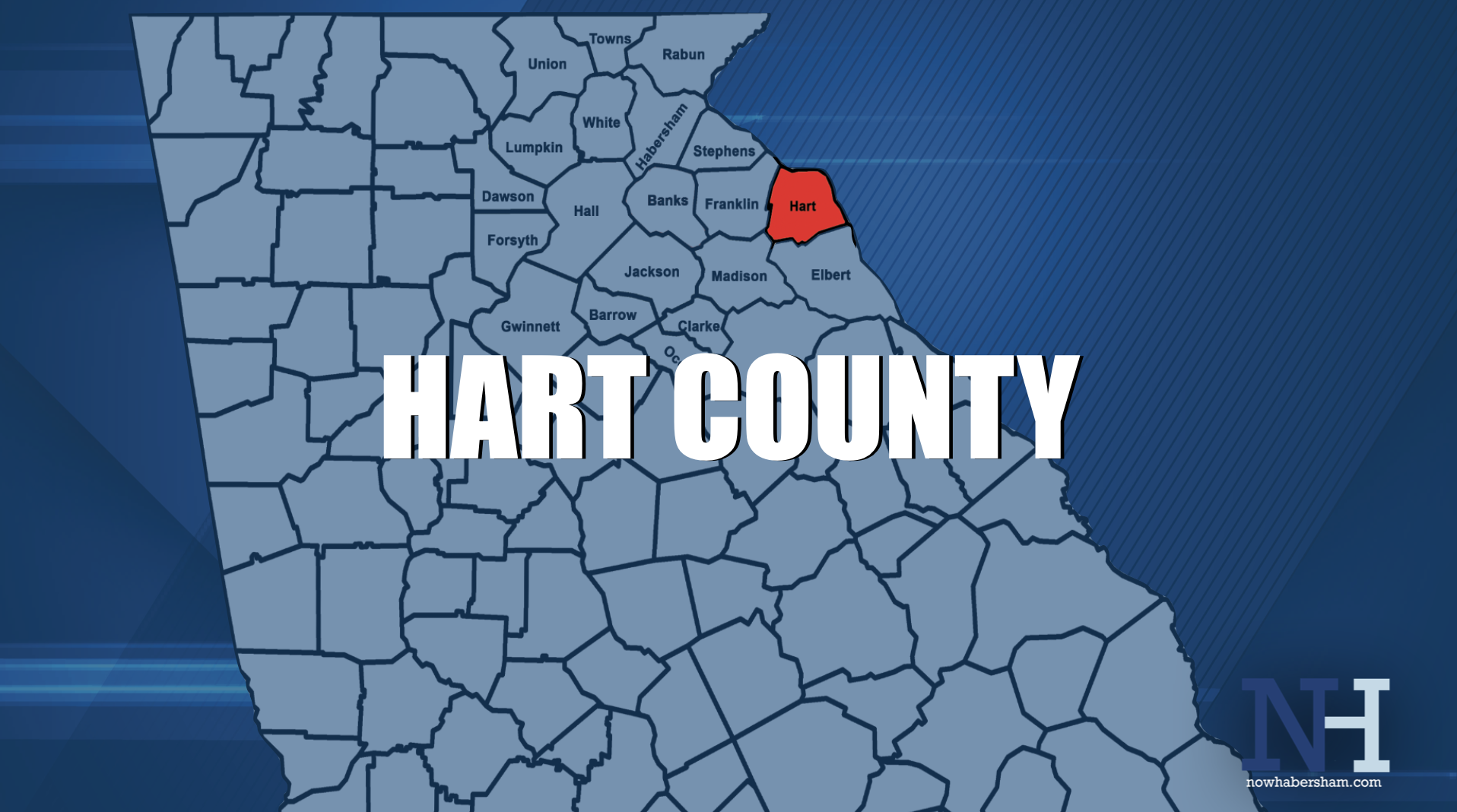WASHINGTON (GA Recorder) — Democrats and Republicans have just a handful of frantic days left to convince voters who should control Congress before voting in the Nov. 8 midterm elections ends.
The two political parties are spending millions on campaign ads and mailers in the dozens of toss-up races that will determine control of Congress, while President Joe Biden, former President Barack Obama and former President Donald Trump are hitting the campaign trail, from Florida to Iowa to Pennsylvania, to bolster candidates.
Sabato’s Crystal Ball, an election forecasting newsletter, expects control of the U.S. Senate—now split 50-50 between the parties— to come down to two pivotal states, Georgia and Nevada.
The newsletter predicts the remaining Senate races as favoring Democrats or Republicans, though some ratings could change in the days to come.
In the U.S. House, the Crystal Ball predicts that 218 seats, the minimum number to control that chamber, are at least leaning toward Republicans with 195 as safe, likely or leaning toward Democratic wins. The remaining 22 races are rated as toss-ups.
Kyle Kondik, managing editor of Sabato’s Crystal Ball at the University of Virginia Center for Politics, said who will hold the majority in the U.S. Senate is still too hard to predict, though he expects Republicans will oust Democrats from control of the U.S. House.
“I think the Senate is still up in the air,” Kondik said. “I guess, given the environment, you might expect things to maybe break toward the Republicans at the end, but I think if you go race-by-race, you don’t necessarily see that. The other confounding factor is that Georgia still seems likelier than not to go to a runoff, which could punt the battle for Senate control until December.”
The Georgia Senate race is close, with Republican challenger Herschel Walker up by 1.6 percentage points over Democratic incumbent Sen. Raphael Warnock, according to the Real Clear Politics polls average.
But polls are within the margin of error. One poll from the New York Times/Siena has Warnock up by 3 percentage points, and another poll by the Atlanta Journal-Constitution has Walker up by 1 percentage point.
Georgia had record voter turnout on the first few days of early voting, the Georgia Recorder reported, with more than 1 million Georgians casting their ballots—a 70% increase over this point in the 2018 midterm election.
Nearly 26 million Americans had voted early as of Monday through a combination of in-person and mail-in ballots, according to the United States Elections Project.
The neck-and-neck Nevada race, which features Democratic incumbent Sen. Catherine Cortez Masto and former Republican Attorney General Adam Laxalt, is seen as both a potentially deciding race and a barometer of the national mood.
Consistently one of the closest races in polling all year, the Nevada contest was tied in the late October New York Times/Siena survey. Each candidate received 47% support, with 4% declining to state a preference.
Biden’s low approval ratings
In U.S. House races, Kondik said, Republicans are favored to become the majority party, with the question being how many seats they pick up as opposed to whether they gain control.
Kondik said Biden’s negative approval rating—which Gallup found at 40 percent a week ago—is one of the key factors that Democrats are dealing with this election cycle, not necessarily objections among voters to any one policy position. Abortion rights, inflation, crime and immigration all have been fought over this election cycle.
“To me, more than any single issue, I think it’s just… how much does Biden’s negative approval rating drag down Democrats, and you can tie a lot of policy questions in with that,” Kondik said.
Many Democrats, he said, have been able to gain more support in polls than Biden, allowing them to run ahead of the president, though that could erode heading into Election Day.
That could allow Republicans to win Senate seats in Arizona, Nevada or Pennsylvania, or even possibly other races currently favored for Democrats, Kondik said.
Even in states and districts that normally favor Democrats, several races are in play.
In Oregon, for example, Republicans could hold multiple U.S. House seats for the first time in 26 years. Three of six House races are competitive, in part because the state added a seat after redistricting last year.
But the new district—rated as leaning toward Democrats—isn’t Republicans’ most likely pickup. That would be a race to replace longtime Democratic incumbent Kurt Schrader, whom Jamie McCleod-Skinner ousted in the May primary. Sabato’s Crystal Ball rates the race lean Republican, and the Oregon Capital Chronicle recently reported the national political climate appears increasingly likely to give the seat to Republicans.
Obama and Trump
Despite the current odds, Democrats plan to campaign down to the wire and are calling on Obama to help close the deal.
Obama has stumped for Democratic candidates in several battleground states during just the past week, including stops in Georgia, Michigan and Wisconsin. He’s also set to rally in both Pittsburgh and Philadelphia on Saturday to bolster Democrats in one of the closest Senate races in the country, between Democrat John Fetterman and Republican Mehmet Oz.
First lady Jill Biden and Vice President Kamala Harris have joined the campaign push as well, visiting battleground states or places Democrats are only narrowly favored to win.
Biden is also on the trail, traveling to Florida Tuesday to talk about Social Security, Medicare and prescription drug prices before flying to New Mexico on Thursday to talk about student debt forgiveness. He’ll then join Obama at the Philadelphia rally Saturday.
Republicans are traveling the country too, with Trump campaigning with Iowa Republican Sen. Chuck Grassley as well as incumbent GOP Gov. Kim Reynolds. And senators not up for reelection this cycle, like Florida Sen. Rick Scott, the head of the Senate GOP campaign arm, are traveling to tightly contested states like New Hampshire, where incumbent Democrat Maggie Hassan faces GOP challenger Don Bolduc.
A GOP House
Republicans gaining control of the U.S. House, even if they don’t pick up the Senate, would lead to substantial changes in the bills that come to the floor and how the chamber functions.
For example, GOP leaders would likely remove the metal detectors that members and staff must walk through before entering the U.S. House, installed following the Jan. 6 attack by pro-Trump rioters.
The use of proxy voting, which allows House members to vote remotely via another member, would likely go away as well. While Republicans have used the feature of the COVID-19 pandemic frequently, they’ve also criticized Democrats for keeping the practice in place. And several news stories have pointed out that members, who are only supposed to proxy vote if they cannot attend in-person due to COVID-19, have frequently used it to attend events or campaign.
Republican House leaders’ so-called Commitment to America, released in September in Pennsylvania, outlines the party’s legislative goals should they regain control. And while it’s short on actual details, it says the GOP would reduce government spending, advance abortion legislation and make changes to Social Security and Medicare.
House Republicans are also eyeing the debt limit and government funding deadlines as a way to force Democrats to the negotiating table for spending cuts, should the GOP regain control of Congress following the midterm elections.
Republicans in the U.S. Senate, led by Minority Leader Mitch McConnell, haven’t detailed exactly what they’d do if given control of that chamber.
Democrats have said if they get two more years of unified control of Congress, they’d move to try to codify Roe v. Wade, the landmark 1973 Supreme Court ruling that recognized abortion access as a constitutional right.
Democrats have also said they will try to advance elements of their climate change, health care and tax package that was slimmed down in the U.S. Senate to get the backing of centrist Sens. Joe Manchin III of West Virginia and Kyrsten Sinema of Arizona.
A split verdict
Divided government is much more likely at this point, however, with Biden remaining in control of the White House and Republicans controlling at least one chamber of Congress.
The split would force both parties to work together on basic responsibilities, though possibly not bigger legislation like the bipartisan infrastructure law or the semiconductor and manufacturing law known as the Chips Act.
Tevi Troy, senior fellow of the Presidential Leadership Initiative at the Bipartisan Policy Center and a former deputy secretary of Health and Human Services in the George W. Bush administration, said during an online discussion this week that losing control of the Senate “would have grave implications for Biden’s ability to get the people he needs into office.”
“Pretty much, if Biden picks someone to serve in his government, he’s generally getting them through,” Troy said. “That would not be the case if there is a Republican Senate and certainly not if you get 52 or 53 votes.”
If Republicans gain control of the U.S. House, Troy said investigations into the Biden administration and congressional oversight hearings would serve an important role for the GOP, though he cautioned GOP leaders against making that the predominant focus.
“If McCarthy is smart—and again he says he’s learned the lessons of 2010—he will see these investigations as kind of a pressure valve, a way to get some of the more partisan elements within his party to get the satisfaction they’re looking for in terms of investigating things that need oversight,” Troy said, referring to House Republican Leader Kevin McCarthy.
“If McCarthy’s smart, that cannot be the overall, sole focus of this new Congress,” he added. “And nobody is voting for Republicans to take over solely to do investigations. The American people want policy wins, they want accomplishments. And I think oversight is one element of what a Congress does. But I think if they just do oversight, it will be a failure.”
A quick history of midterms
Based on history alone, Democrats are facing an uphill battle trying to hold onto both chambers, given that the president’s party typically loses seats and often control of Congress during the first midterm election.
The landmark first midterms of Bill Clinton’s presidency in 1994 saw Democrats lose 54 seats in the House, upending a majority they’d held since 1955. In the Senate, Democrats lost nine total seats, moving to the minority party for the first time since 1987.
But Republicans actually gained eight seats in the House following the 2002 midterms, the first of George W. Bush’s presidency. And Republicans went from 50 Senate seats to 51.
Obama’s first midterm election test came in 2010, when Democrats lost 64 seats in the House. In the Senate, Democrats went from 57 seats with two independent members caucusing with them to 51 seats with two independents as part of the caucus.
Republicans lost 42 seats in the House during the 2018 midterms, the first contest during Trump’s one term in office. But Republicans picked up two Senate seats that year, according to records from the House and historical information from the Senate.
_______________
Jacob Fischler and Ariana Figueroa contributed to this report.
















